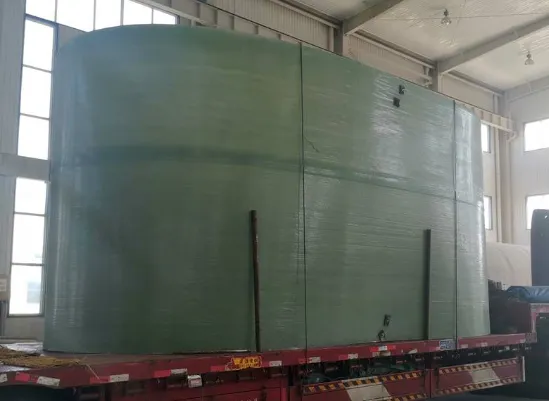
-
 Afrikaans
Afrikaans -
 Albanian
Albanian -
 Amharic
Amharic -
 Arabic
Arabic -
 Armenian
Armenian -
 Azerbaijani
Azerbaijani -
 Basque
Basque -
 Belarusian
Belarusian -
 Bengali
Bengali -
 Bosnian
Bosnian -
 Bulgarian
Bulgarian -
 Catalan
Catalan -
 Cebuano
Cebuano -
 China
China -
 China (Taiwan)
China (Taiwan) -
 Corsican
Corsican -
 Croatian
Croatian -
 Czech
Czech -
 Danish
Danish -
 Dutch
Dutch -
 English
English -
 Esperanto
Esperanto -
 Estonian
Estonian -
 Finnish
Finnish -
 French
French -
 Frisian
Frisian -
 Galician
Galician -
 Georgian
Georgian -
 German
German -
 Greek
Greek -
 Gujarati
Gujarati -
 Haitian Creole
Haitian Creole -
 hausa
hausa -
 hawaiian
hawaiian -
 Hebrew
Hebrew -
 Hindi
Hindi -
 Miao
Miao -
 Hungarian
Hungarian -
 Icelandic
Icelandic -
 igbo
igbo -
 Indonesian
Indonesian -
 irish
irish -
 Italian
Italian -
 Japanese
Japanese -
 Javanese
Javanese -
 Kannada
Kannada -
 kazakh
kazakh -
 Khmer
Khmer -
 Rwandese
Rwandese -
 Korean
Korean -
 Kurdish
Kurdish -
 Kyrgyz
Kyrgyz -
 Lao
Lao -
 Latin
Latin -
 Latvian
Latvian -
 Lithuanian
Lithuanian -
 Luxembourgish
Luxembourgish -
 Macedonian
Macedonian -
 Malgashi
Malgashi -
 Malay
Malay -
 Malayalam
Malayalam -
 Maltese
Maltese -
 Maori
Maori -
 Marathi
Marathi -
 Mongolian
Mongolian -
 Myanmar
Myanmar -
 Nepali
Nepali -
 Norwegian
Norwegian -
 Norwegian
Norwegian -
 Occitan
Occitan -
 Pashto
Pashto -
 Persian
Persian -
 Polish
Polish -
 Portuguese
Portuguese -
 Punjabi
Punjabi -
 Romanian
Romanian -
 Russian
Russian -
 Samoan
Samoan -
 Scottish Gaelic
Scottish Gaelic -
 Serbian
Serbian -
 Sesotho
Sesotho -
 Shona
Shona -
 Sindhi
Sindhi -
 Sinhala
Sinhala -
 Slovak
Slovak -
 Slovenian
Slovenian -
 Somali
Somali -
 Spanish
Spanish -
 Sundanese
Sundanese -
 Swahili
Swahili -
 Swedish
Swedish -
 Tagalog
Tagalog -
 Tajik
Tajik -
 Tamil
Tamil -
 Tatar
Tatar -
 Telugu
Telugu -
 Thai
Thai -
 Turkish
Turkish -
 Turkmen
Turkmen -
 Ukrainian
Ukrainian -
 Urdu
Urdu -
 Uighur
Uighur -
 Uzbek
Uzbek -
 Vietnamese
Vietnamese -
 Welsh
Welsh -
 Bantu
Bantu -
 Yiddish
Yiddish -
 Yoruba
Yoruba -
 Zulu
Zulu
Fiberglass Covers Durable FRP Trough Protection Solutions for Industry
- Overview of fiberglass protective solutions
- Technical superiority in material engineering
- Performance comparison: Leading manufacturers
- Customization capabilities for specialized needs
- Industry-specific application scenarios
- Quantifiable operational benefits
- Future trends in industrial protection

(fiberglass cover)
Enhancing Industrial Safety with Fiberglass Cover Solutions
Modern industries increasingly adopt fiberglass trough covers as critical infrastructure components. These FRP protective solutions demonstrate 92% corrosion resistance improvement over traditional metal alternatives according to ASTM B117 salt spray tests. The global market for fiberglass cover
s grew 7.8% CAGR from 2022-2029, driven by chemical processing and wastewater management demands.
Material Engineering Breakthroughs
Advanced resin formulations enable fiberglass covers to withstand temperatures from -60°F to 300°F while maintaining structural integrity. Cross-linked polymers create a 40% denser matrix than standard FRP, achieving 18,000 psi tensile strength. UV-stabilized surfaces retain 97% chromatic stability after 10,000 hours of accelerated weathering.
| Manufacturer | Load Capacity (lbs/ft²) | Thermal Range (°F) | Corrosion Rating | Price Index |
|---|---|---|---|---|
| FiberTech Pro | 450 | -80 to 320 | Class A | 1.25 |
| ShieldLine FRP | 380 | -40 to 280 | Class B+ | 1.00 |
| DuraGuard Solutions | 520 | -100 to 350 | Class AA | 1.45 |
Precision Customization Options
Specialized fiberglass cover production accommodates non-standard dimensions up to 24' length with ±1/8" tolerance. Custom features include:
- Anti-skid diamond patterns (0.65 COF)
- Integrated lifting lugs (2,500 lb capacity)
- RFID tracking embeds
- EMI shielding layers
Operational Efficiency Metrics
Chemical plants report 63% reduction in maintenance costs after replacing steel trough covers with FRP alternatives. Wastewater facilities achieve 82% faster access times through lightweight (9.3 lb/ft³) modular designs compared to concrete systems.
Cross-Industry Implementation
Case Study 1: Petrochemical Complex
1,200 custom fiberglass covers installed across 8 miles of process lines, withstanding pH 1-14 exposure. Resulted in $280k annual savings from eliminated replacement cycles.
Next-Generation Industrial Protection
Smart fiberglass covers now integrate IoT sensors monitoring structural health parameters. These FRP trough solutions transmit real-time data on stress loads (0-500 psi), temperature fluctuations, and chemical exposure levels, enabling predictive maintenance models.

(fiberglass cover)
FAQS on fiberglass cover
Q: What are the key benefits of using a fiberglass cover in industrial applications?
A: Fiberglass covers offer corrosion resistance, lightweight durability, and high strength-to-weight ratios, making them ideal for harsh environments like chemical plants or wastewater treatment facilities.
Q: How does a fiberglass trough cover enhance safety in industrial settings?
A: Fiberglass trough covers provide slip-resistant surfaces, withstand heavy loads, and protect workers from exposure to hazardous materials or open trenches.
Q: Why choose FRP trough covers over traditional materials like steel or concrete?
A: FRP trough covers resist rust, chemicals, and UV degradation while being easier to install and maintain compared to heavier, corrosion-prone alternatives.
Q: Can fiberglass covers be customized for specific industrial needs?
A: Yes, fiberglass covers are easily molded into custom shapes, sizes, and colors, with options for added features like access panels or ventilation.
Q: What maintenance is required for FRP protective solutions?
A: FRP trough covers require minimal maintenance—periodic cleaning with mild detergents and routine inspections for damage or wear ensure long-term performance.
Latest news
-
FRP Manhole Covers Durable, Lightweight & Corrosion-Resistant SolutionsNewsMay.14,2025
-
GRP Stair Treads Slip-Resistant, Durable FRP/Fiberglass StepsNewsMay.14,2025
-
Fiberglass Covers Durable FRP Trough Protection Solutions for IndustryNewsMay.14,2025
-
High-Performance Anchoring, Drilling Rods & Bits Efficient & Precise ToolsNewsMay.13,2025
-
FRP/GRP Fittings for Desalination & Industrial Systems Corrosion-ResistantNewsMay.13,2025
-
High-Pressure Fiberglass Pipe Flanges Durable & Lightweight SolutionsNewsMay.12,2025









